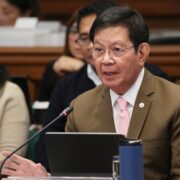ICJ’s silence on gender aspect of climate justice

DHAKA—On July 23, 2025, the International Court of Justice (ICJ) issued a landmark advisory opinion on states’ obligations related to climate change, a long-awaited milestone in the global push for climate justice. However, the opinion falls short in addressing crucial justice dimensions, particularly from a feminist perspective.
The ICJ addressed two key questions: what legal obligations states hold concerning climate change, and what consequences arise from failing those obligations, especially for vulnerable populations and future generations. The court confirmed that these obligations stem both from climate treaties and customary international law, human rights law, and general principles of international law.
Substantively, the court affirmed that all states must act to prevent “significant harm” to the environment and to human rights threatened by climate change. This includes a duty of due diligence to regulate emissions and a binding obligation to cooperate globally. Crucially, the court elevated the 1.5-degree-Celsius target of Paris Agreement from an aspirational goal to a legally relevant benchmark, meaning the countries’ climate pledges may now be judged against it in legal terms.
The opinion underscored that inaction violates core human rights: the rights to life, health, food, water, and a healthy environment. It emphasized that states could bear international responsibility for failing to act in accordance with scientific evidence and well-established legal norms. This pressures countries to enhance their next Nationally Determined Contributions (NDCs) and scale up financial and technical support for developing countries, based on the principles of equity and common but differentiated responsibilities.
The ICJ’s recognition that climate-vulnerable nations like Bangladesh and Small Island Developing States (SIDS) can retain legal personality even if rising seas physically submerge them is groundbreaking. It enhances their legal standing in climate negotiations and opens the door to potential reparation claims in case of climate inaction by states or corporations.
However, the ICJ’s opinion stops short of addressing one of the most persistent blind spots in global climate governance: the gendered dimensions of climate justice.
From a feminist lens, the opinion remains overly abstract and state-centric, failing to recognize how intersecting vulnerabilities shape real-world experiences. Although it references “vulnerable groups,” it does not disaggregate or meaningfully analyze how women, indigenous peoples, gender minorities, and those at the margins of poverty and displacement face disproportionate climate impacts.
Feminist legal scholars argue that this was a missed opportunity to incorporate gender-specific obligations into the climate governance framework. By not applying an intersectional approach, the opinion risks reinforcing structural inequalities rooted in patriarchal systems that govern access to resources, political voice, and burdens of unpaid labour. Women in the Global South, for instance, often serve as frontline defenders of the environment while being excluded from formal climate decision-making and finance. The ICJ’s silence on this reinforces a justice framework that is procedural but not transformative.
The ICJ’s bench remains predominantly male and drawn from elite legal circles. While representation alone doesn’t guarantee justice, diverse perspectives, particularly from the Global South and feminist legal traditions, are essential to developing jurisprudence that responds to the full complexity of climate injustice.
Still, all is not lost. Feminist activists and legal advocates can leverage the ICJ’s affirmation of human rights and intergenerational equity to press for gender-sensitive laws and policies at national and regional levels.
Whether ICJ’s opinion leads to a more just climate order will depend on how civil society, legal practitioners, and policymakers push its boundaries. Without centering those most impacted by climate breakdown, the law risks becoming a tool of legitimacy rather than liberation. Thus for Bangladesh for instance, the ask at national level is to adopt a climate justice legislation that is gender-sensitive and transformational. The Daily Star/Asia News Network
——————
Farah Kabir is country director at ActionAid Bangladesh
——————
The Philippine Daily Inquirer is a member of the Asia News Network, an alliance of 22 media titles in the region.

















Faith, violence, protest in a fragmented world